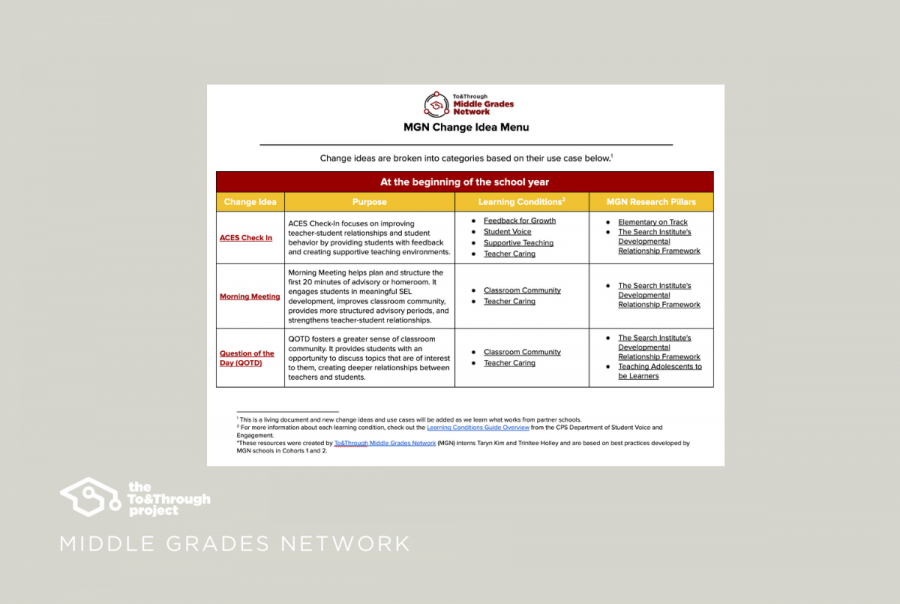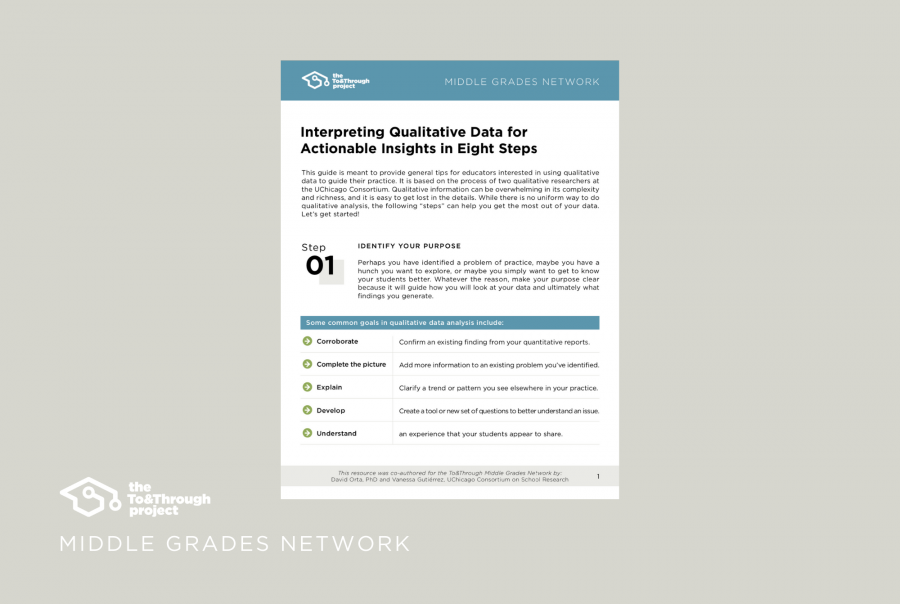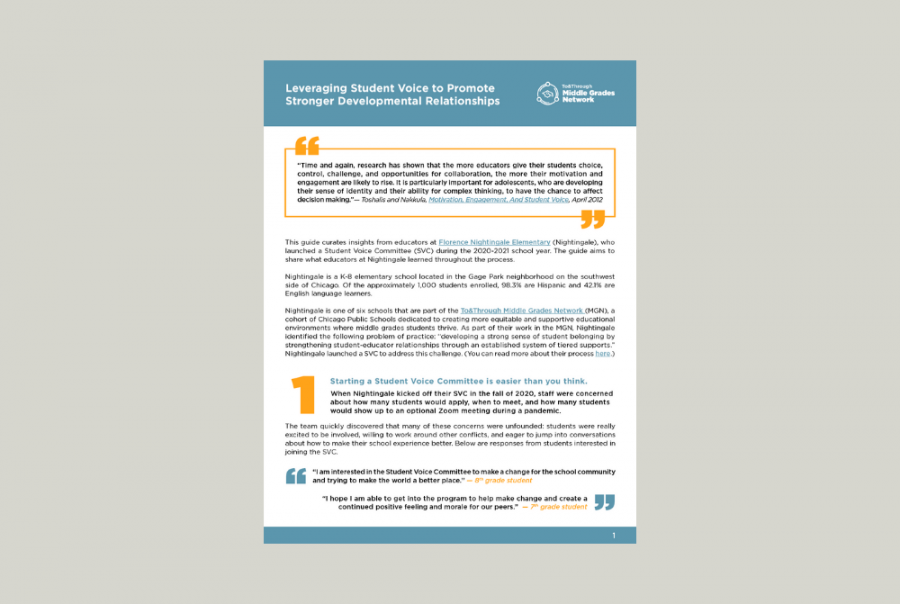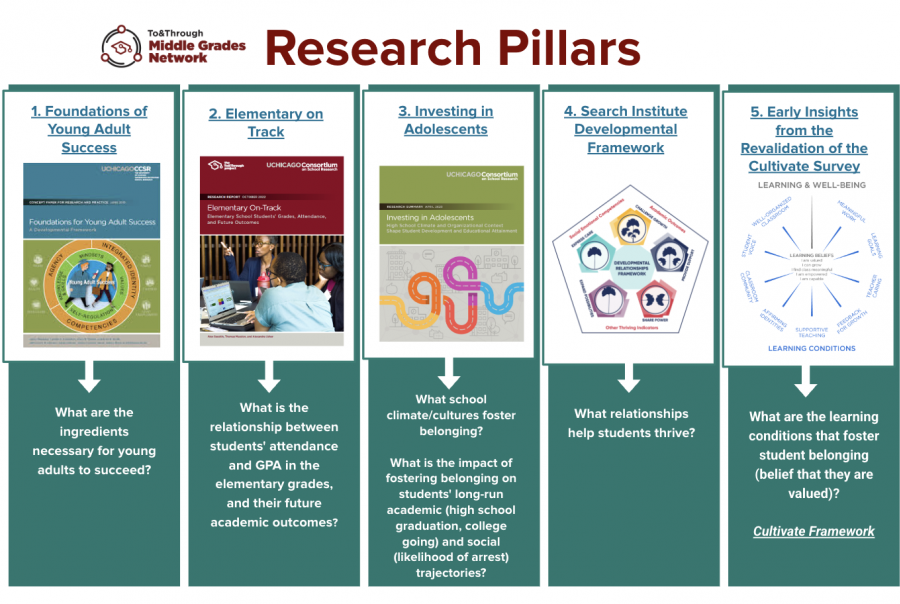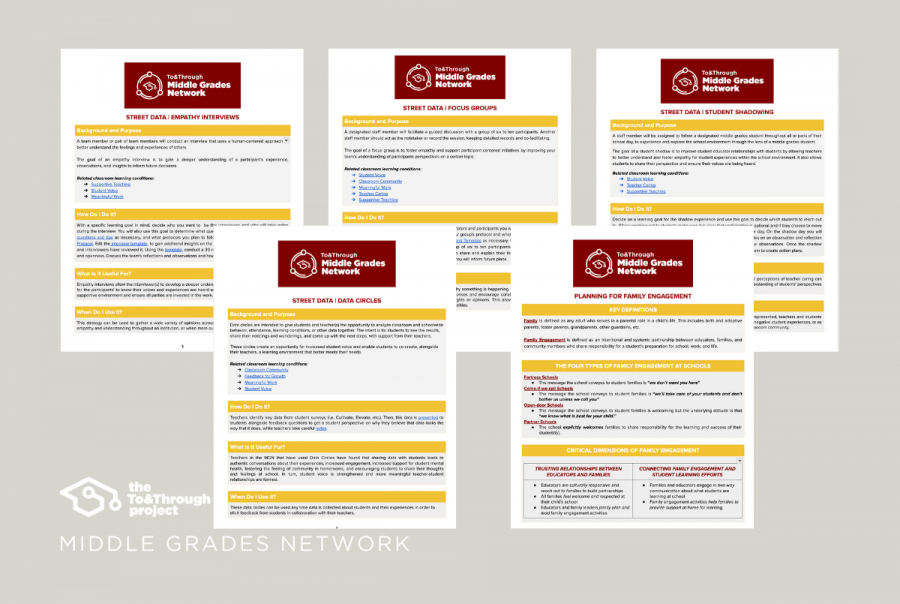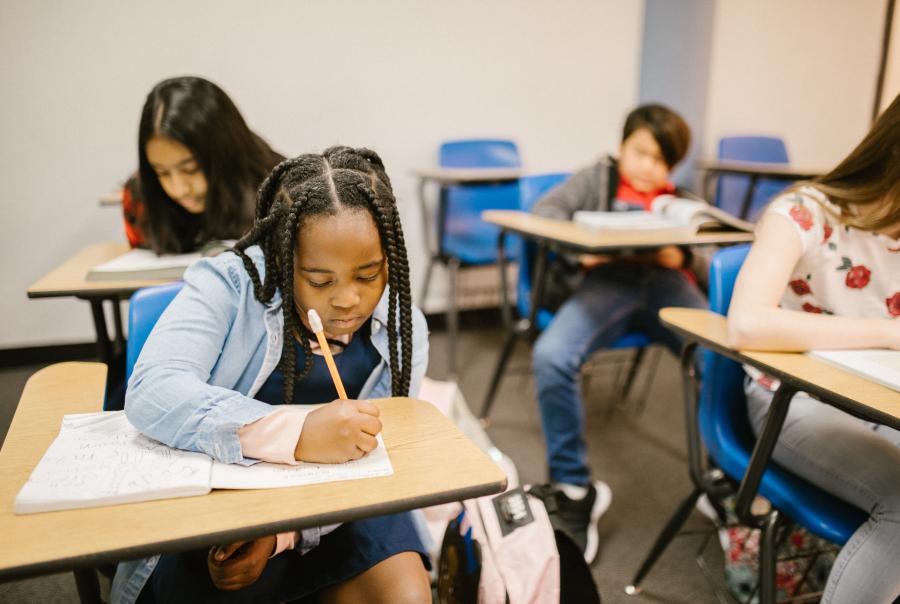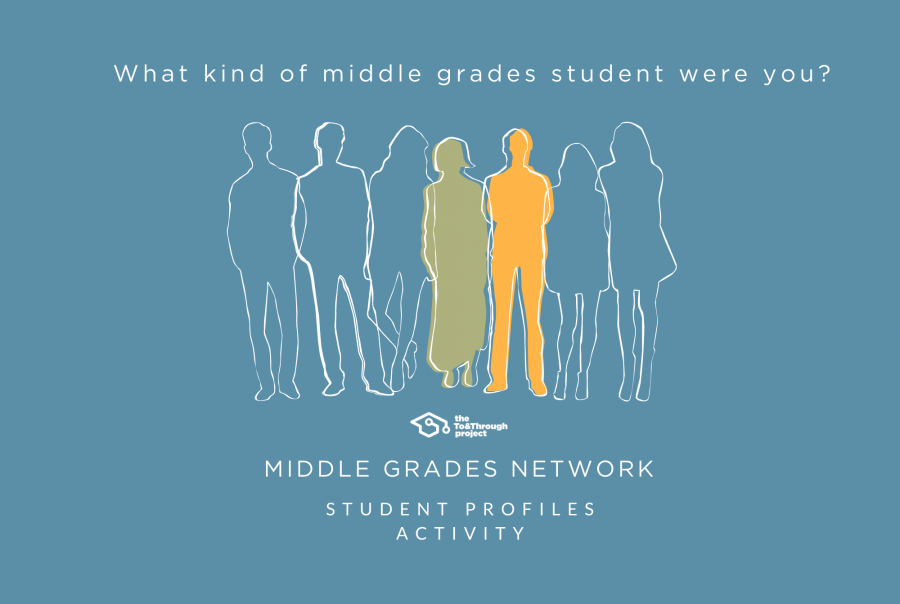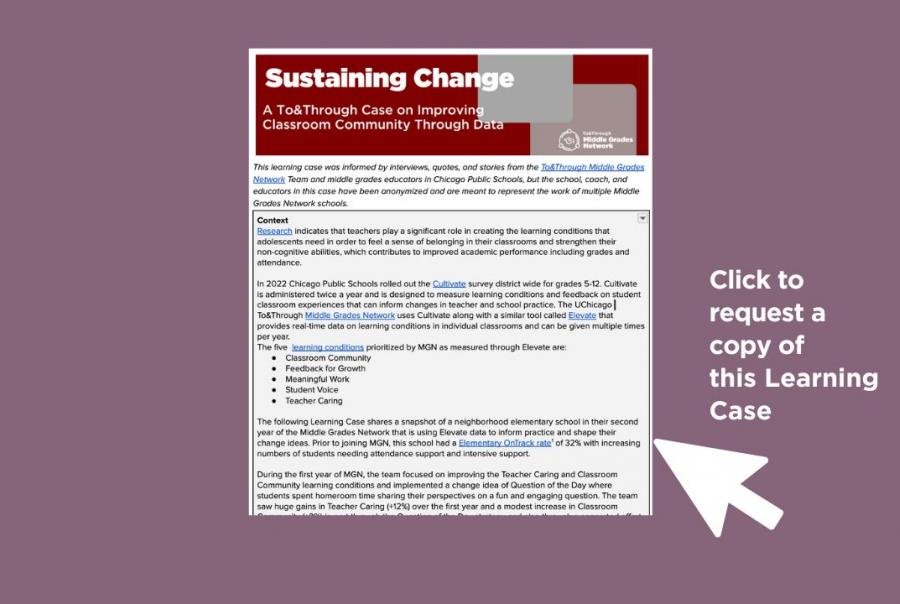Middle grades-focused classroom activities, student and family engagement guides, presentations, and more
Our collection of middle grades success resources includes guides, research briefs, and professional development activities that are curated or produced by the To&Through Middle Grades Network (MGN). The MGN is a group of schools dedicated to creating more equitable and supportive educational environments where middle grades students can thrive. The network seeks to build the capacity of practitioners to understand the developmental, social-emotional, and non-academic factors critical for student success and to make changes in practice that improve middle grades indicators for success in high school and beyond.

